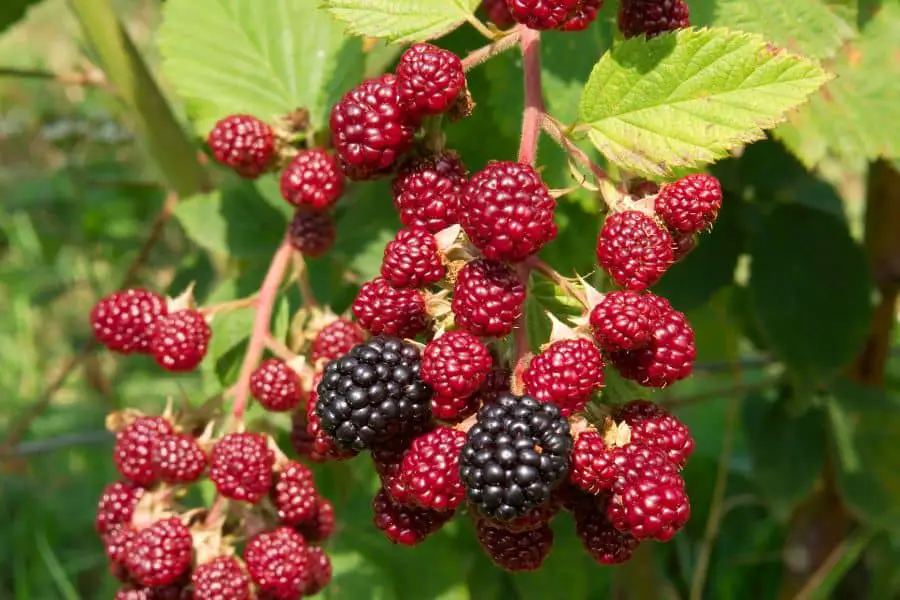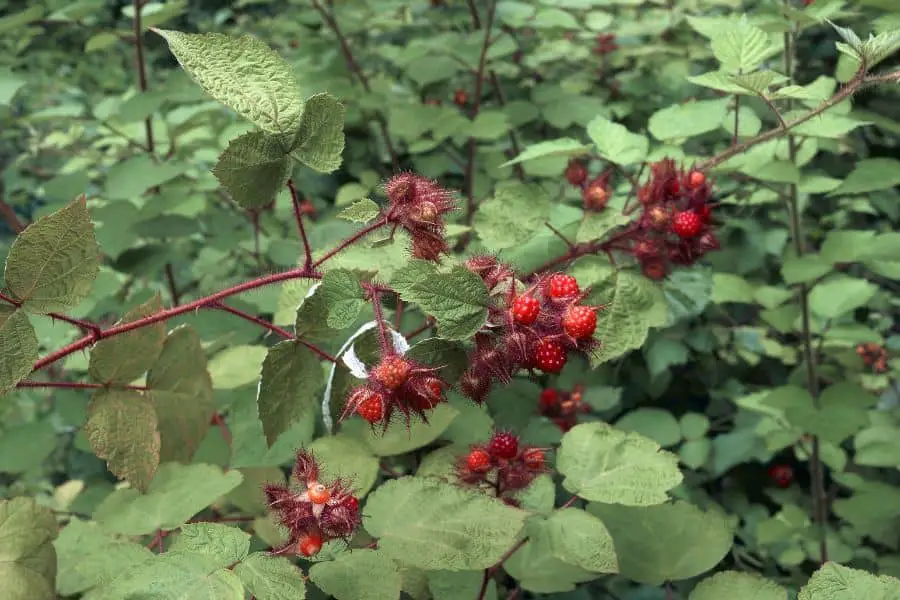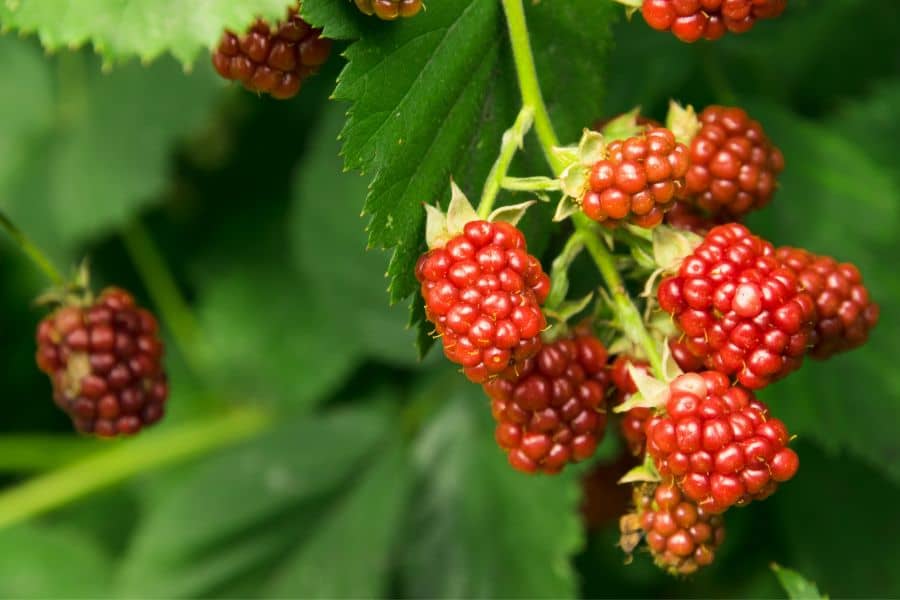I have a garden, and I do a lot of things to make it flourish. One of those tasks is pruning. Pruning is important because it helps the plant grow in a healthy way and also helps the plant produce more fruit. So, this one time, I forgot to prune raspberries. At that time, it troubled me a lot. Well, it turns out that as long as the sun is shining and it’s raining enough, my raspberry bushes continue to thrive. But sadly, they did not produce as much fruit as before.
So I learned that my raspberry plant needs proper pruning at the right time. But that’s not all you should know. This article will provide a breakdown of what happens to raspberry bushes if they’re not pruned, so you can make sure your plants get the care they need.

Do raspberries need to be cut back every year?
Contents
Raspberries are perennial plants, meaning they grow and produce fruit in the same season each year. Regardless of the raspberry plant’s fruiting season and growth habit, all raspberries produce new canes in the spring. These shoots are the parts that will produce fruit. The canes live for two years and die when the fruiting is done. These dead canes can be taken out at the end of the fruiting season to encourage new and fresh canes for the next year.
Not pruning your raspberry canes will result in overcrowded and unhealthy plants. The new growth produced by the existing canes will be too dense, leading to a decrease in air circulation, which can be detrimental to your plant’s health. Additionally, the old canes will stay on the plant without pruning, meaning there will be less space for new canes to emerge. This can lead to a decrease in the number of fruit-bearing canes, resulting in a smaller yield.
So, if you’re a raspberry gardener, you must cut back your raspberry canes every year to ensure optimal growth, health, and yield. Pruning will help to keep your plants healthy, reduce disease pressure, and ensure a bountiful harvest.
When should I prune raspberry canes?
As I found out, the Department of Horticulture at Iowa State University named March or early April as the best time to prune your raspberry canes, which is in late winter to early spring. This is the best time to prune because it encourages new growth for the upcoming fruiting season.
When pruning your raspberry canes, you should cut off the dead and weak canes, as well as any suckers or shoots that grow from the plant base. Additionally, you should cut off any canes that have flowered or fruited in the previous year. The goal is to build a strong structure that allows for plenty of light and air circulation so that the raspberry canes can grow healthy and productively.
It is critical to prune your raspberries’ canes on a yearly basis in order for them to be healthy and productive. Doing so will ensure optimal growth and yield and a healthy and thriving raspberry plant.

What happens if I forgot to prune raspberries?
Although I forgot to prune raspberries the plant will thrive and yield more fruit when it is given more water, nutrients, and sunlight. These are what we believe to be the ideal conditions for a plant to grow. However, there are some plants that need to be pruned in order to reach their full potential.
Raspberry plants are one of those plants that need to be pruned for optimal health and yield. If you don’t prune, then the raspberry canes will become too dense, leading to a decrease in air circulation. This will cause the plant to become unhealthy, leading to a decrease in yield and an increase in disease pressure.
Here’s what you can expect from a raspberry plant that has been forgotten to prune.
- The plant will be larger and bushier than a well-maintained plant, but the canes will be more susceptible to disease and pests.
If you don’t prune your raspberry plants, they will become too dense and unhealthy. The new growth produced by the existing canes will be too dense, leading to a decrease in air circulation, which can be detrimental to your plant’s health.
Additionally, the old spent canes will stay on the plant without pruning, meaning there will be less space for new canes to emerge. The spent canes will also attract disease and pests, further decreasing the yield of your raspberry crop.
- The yields will likely be lower due to a decrease in the number of fruit-bearing canes, and the fruits themselves may be smaller and less flavorful.
Since the old spent canes block the space for new canes to emerge, the plant will produce a decreased number of fruit-bearing canes the next season. Further, the spent canes decrease air circulation, which is important for the health of your plant.
These changes will result in a decreased yield and a decrease in the quality of your raspberry crop. The raspberries will be smaller and less flavorful. Ultimately, if you don’t prune your raspberry canes, you’re sure to see a decrease in yield and quality.
- The canes will also be more brittle and prone to breakage, making them difficult to handle.
As the fruit-bearing canes get fewer nutrients, less sunlight, and less air circulation, the canes will be more brittle and prone to breakage. This makes the canes more challenging to handle, which can be a hassle when it comes to harvesting the fruit.

How should I prune my raspberries?
The pruning procedure for different raspberry types changes as follows:
Summer-bearing red raspberries: remove weak, diseased, and damaged canes (shoots) at ground level; thin the remaining canes so they are 6 inches apart; prune out the tips of dead canes.
Fall-bearing red raspberries (two crop systems): follow the same pruning procedures as summer-bearing red raspberries.
Fall-bearing red raspberries (one crop system): prune all canes back to ground level in March or early April.
Yellow raspberries: prune the same as summer-bearing and fall-bearing red raspberries.
Black and purple raspberries: remove small, weak canes; cut back lateral branches to 12 inches (black) or 18 inches (purple).
Conclusion
Pruning your raspberries is an important step in achieving a healthy and thriving raspberry plant. Pruning helps maintain optimal growth and yield and also helps reduce diseases and pests. Make sure to follow the outlined pruning procedure for your specific type of raspberry for the best results!
Of course, proper watering, fertilization, and weed control are also important for a healthy raspberry plant. If you take the time to properly maintain your raspberry plants, you’ll be rewarded with a bountiful harvest of delicious and healthy raspberries.
FAQ
How long do raspberry plants live?
Raspberry plants may live for 10 to 15 years if properly cared for and provided with ideal growing conditions. However, black raspberry plants will only last for 5 to 10 years due to the presence of pests or adverse environmental conditions.
Proper care for raspberry plants includes watering them regularly, fertilizing them every few weeks during the growing season, and removing any debris from the plant’s base. If these steps are followed, then the raspberry plants should live a long and healthy life.
What do you do with raspberry plants in the winter?
In the winter, you should prepare your raspberry plants for dormancy. This means cutting back any dead or diseased canes to ground level and also making sure the plant is properly fertilized and watered. You should also cover the raspberry plants with straw or other organic matter to help insulate them during the cold winter months.
This will help the raspberry plants survive and be ready to produce fruit come springtime. Additionally, you should check your plants throughout the winter and remove any debris or weeds that may have grown around them. This is an important step in keeping your raspberry plants healthy and ready to produce a bountiful harvest come spring.
Should I fertilize my raspberry plants?
Yes, you should fertilize your raspberry plants every few weeks during the growing season. This will help ensure that the raspberry plants have enough nutrients to produce a healthy, bountiful harvest. It is also important to ensure the fertilizer you use is specifically formulated for raspberry plants, as other fertilizers may not have the right nutrients for your plants.
Additionally, you should make sure to water the raspberry plants regularly and remove weeds or debris from the base of the plant to ensure proper growth. By following these steps, your raspberry plants will be healthy and ready to produce a delicious harvest come summer.
How do I know if my raspberries are summer or autumn?
Summer-bearing raspberries grow one fruit crop in the summer, generally from June to October. Fall-bearing raspberries, on the other hand, produce two fruit crops during the year: the main harvest in the summer and another smaller quantity harvested later. To determine if your raspberries are summer- or fall-bearing, look at the canes.
Summer-bearing raspberries have one-year-old canes that are shorter, thicker, and often red in color. Fall-bearing raspberries have two-year-old canes that are longer, thinner, and mostly green in color. Knowing which type of raspberry you have will help you properly prune your plants for optimal growth and yield.
Read Next : Zucchini Leaves Turning Brown ( 7 Reasons + Solutions)
Read Next : Do Mice Eat Basil Plants? ( Better Explanation )
Read Next : Do Rose Of Sharon Like Coffee Grounds? (Pros & Cons)




